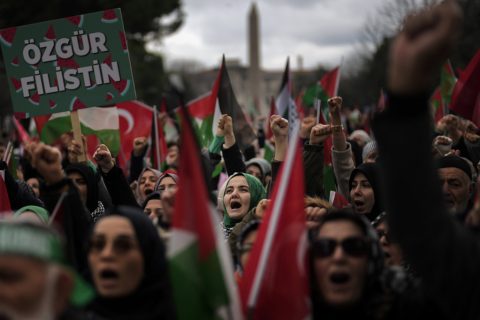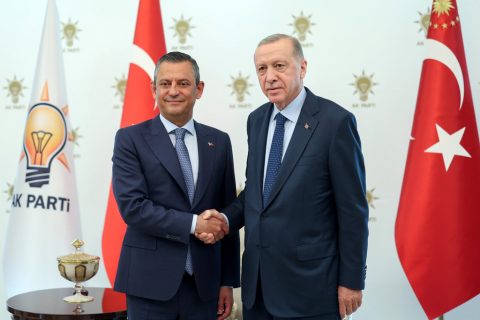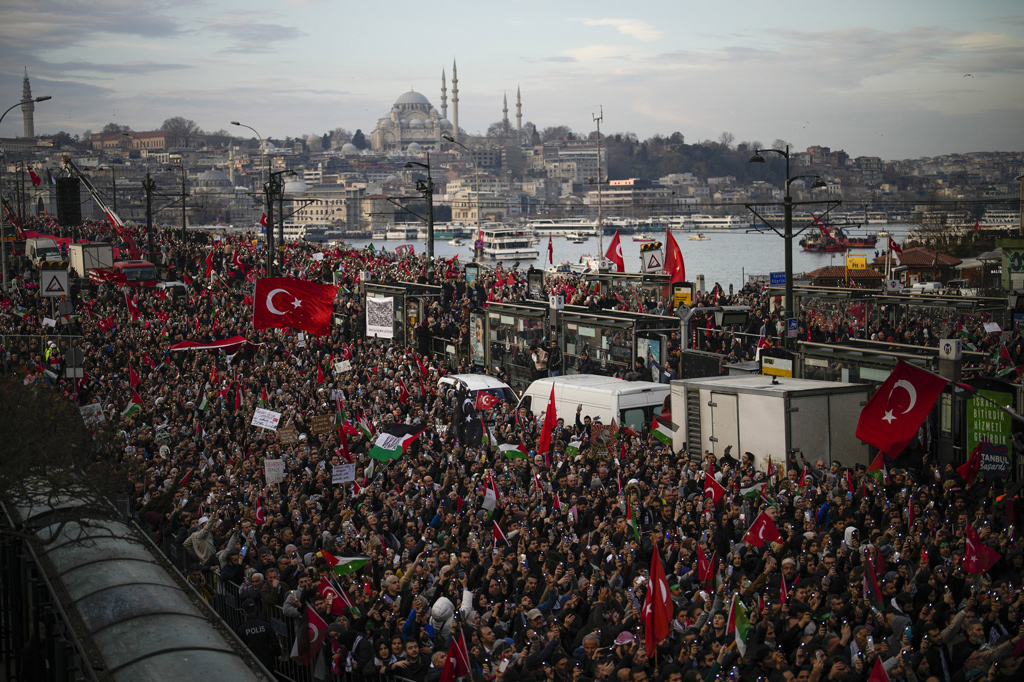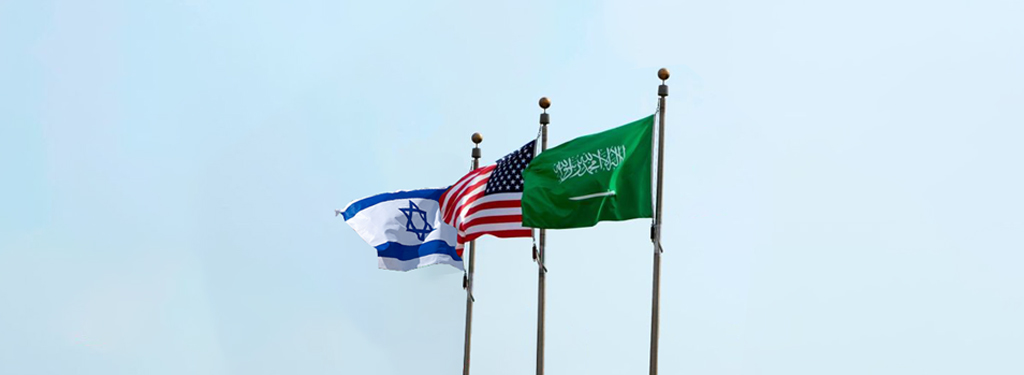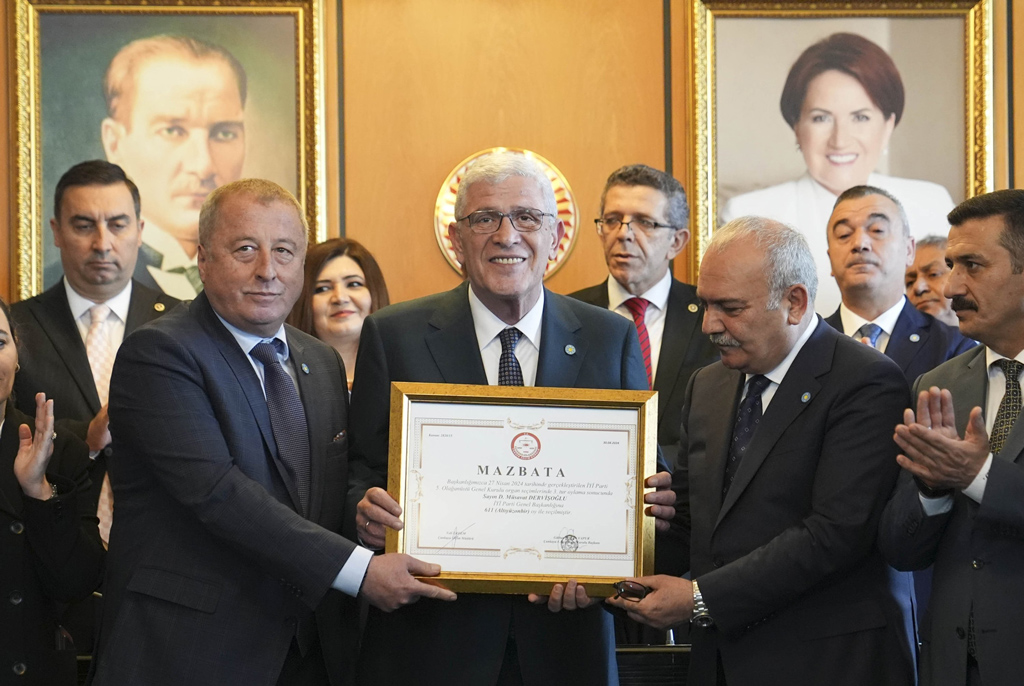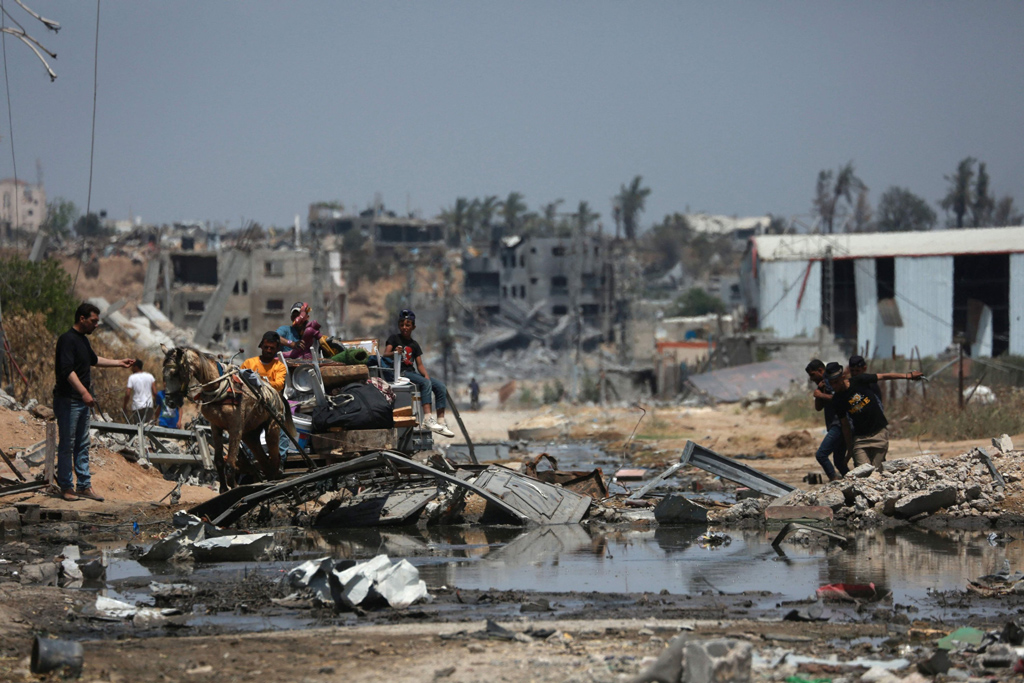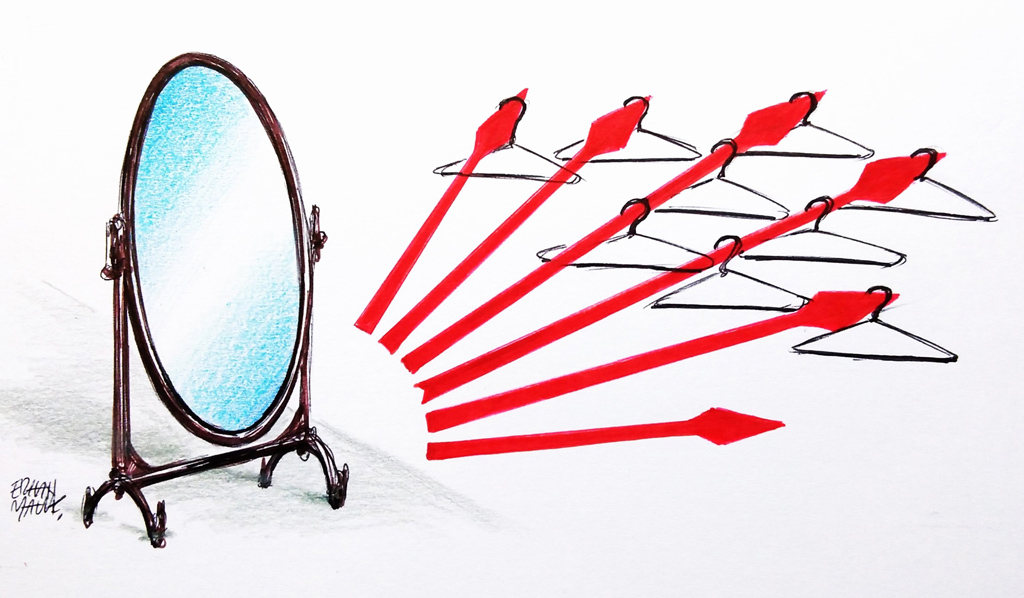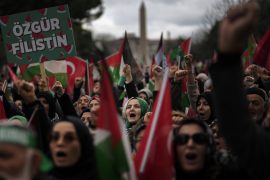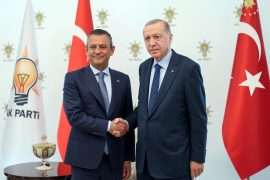
Diplomatic push for peace: Türkiye’s efforts in Gaza
| OpinionSince the early days of the post-Oct. 7 period, Türkiye has been insistently trying to de-escalate the tension in Palestine and to find a way for a lasting cease-fire. In the wake of the Al-Aqsa Flood and the first Israeli reactions, Türkiye called both sides not to escalate the tension. However, with the full support of the global Western powers, the Israeli side intensified its ruthless military campaign against innocent Palestinian civilians, the majority of whom are children and women, with full steam. Türkiye has been following an exceptional policy toward the Gaza crisis. It has taken several significant initiatives since Oct. 7.
-
Opinion
Diplomatic push for peace: Türkiye’s efforts in Gaza
By Muhittin AtamanSince the early days of the post-Oct. 7 period, Türkiye has been insistently trying to de-escalate the tension in Palestine and to find a way for a lasting cease-fire. In the wake of the Al-Aqsa Flood and the first Israeli reactions, Türkiye called both sides not to escalate the tension. However, with the full support of the global Western powers, the Israeli side intensified its ruthless military campaign against innocent Palestinian civilians, the majority of whom are children and women, with full steam. Türkiye has been following an exceptional policy toward the Gaza crisis. It has taken several significant initiatives since Oct. 7.
-
Opinion
What does ‘political détente’ bring to Turkish politics?
By Burhanettin DuranSpeaking to reporters after last week’s Friday prayer, President Recep Tayyip Erdoğan commented on his meeting with Republican People’s Party (CHP) Chairperson Özgür Özel, adding that he intended to visit the CHP headquarters soon: “This is what Türkiye and Turkish politics need. I wish to start a process of political softening in Türkiye by making that visit happen at the earliest convenience. We will take that step.”
-
Opinion
Erdoğan-Özel meeting heralds new political phase in Türkiye
By Burhanettin DuranPresident Recep Tayyip Erdoğan met with the Republican People’s Party (CHP) Chairperson Özgür Özel on Thursday. The meeting, which lasted just over 1.5 hours, marked the beginning of a new political process in Türkiye. The Republicans reportedly viewed the meeting as “positive,” and the Turkish media reported that Erdoğan would visit the CHP headquarters in the future.
-
Türkiye’s diplomatic and legal stand in Gaza crisis
By Murat YeşiltaşTürkiye has been diligently navigating a highly dynamic foreign policy agenda since Oct. 7. The inception of this process, spurred by Hamas’s Operation Aqsa Flood, has compelled Türkiye to undertake a comprehensive reassessment of its foreign policy strategies and plans in the Middle East.
-
Normalization of Israel-Saudi ties under US sponsorship
By Kadir ÜstünIn recent days, news suggesting progress in the discussions between the United States and Saudi Arabia, and approaching the stage of agreement, could herald a new era in the Middle East. Saudis are seeking support from the United States to develop 'peaceful' nuclear technology in response to Iran's nuclear capacity, as well as security assurances in the event of a potential war. The agreement, which includes cooperation in advanced technology and distancing from China, is critical for the Biden administration, as its support depends on it. However, it will be challenging for a government led by Netanyahu, who has always opposed the establishment of a Palestinian state, to accept the insistence of the Saudis on stopping the Gaza war and a two-state solution. The Biden administration aims to use the normalization of relations between Israel and Saudi Arabia to sideline the Gaza issue and appear to have 'resolved' the Palestinian issue by the November elections, but Netanyahu remains the biggest obstacle to this.
-
CHP Chair Özel’s line challenges new IP’s third-way agenda
By Burhanettin DuranThe Good Party (IP) held an emergency congress on Sunday to replace its chairperson, Meral Akşener, with Müsavat Dervişoğlu.
-
Why Arabs do not support Palestine?
By Muhittin AtamanIt is surprising to see that the Arab governments and citizens did not react effectively to the latest developments in the Gaza Strip. Although observers have been expecting a more effective reaction from Arab governments and citizens, they have largely remained indifferent to the ongoing genocide against the Palestinian people, living not only in the Gaza Strip but also in the West Bank. The streets of Arab states are unexpectedly very quiet compared with the streets of many non-Arab and non-Muslim countries.
-
How long will CHP Chair Özgür Özel’s new politics...
By Burhanettin DuranSince taking over as chairperson of the Republican People’s Party (CHP), Özgür Özel has notably distanced himself from his "polemicist" style of his tenure as minority whip. Many wonder why the new Republican leader, who adopted this approach prior to the March 31 municipal elections and remained committed to it thereafter, is doing what he is doing and how long he intends to do it.
